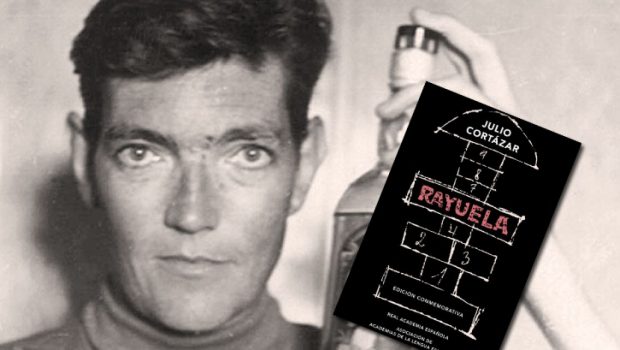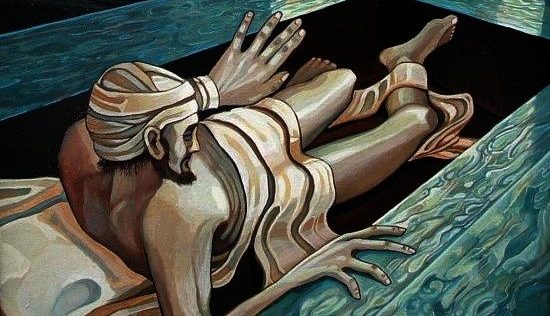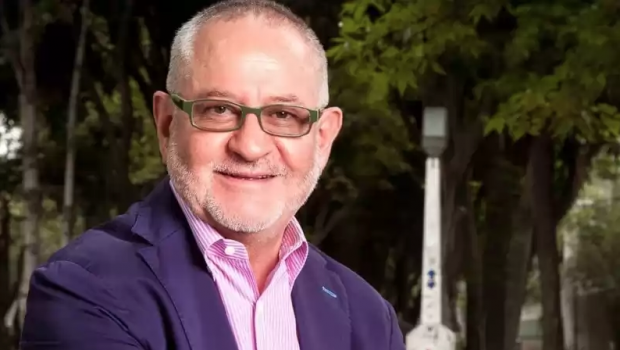A Third Culture. Literature and Migration
Sergio Troncoso
I grew up on the Mexican-American border of El Paso, Texas, about one kilometer from Mexico, the homeland of my parents who were from Chihuahua. In the barrio, Ysleta, where I lived until high school, we spoke Spanish on the streets and at home, and English in school. The bilingual border existence I assumed was the norm until I arrived at Harvard, where I was shocked to learn not everyone was fluent in both Spanish and English, and Latinos were not a signifi cant minority much less the majority as they were in El Paso.
What was the signifi cance of this migration from Spanish to English, from Mexican culture to the culture of the America’s Northeast? The fi rst was a struggle for legitimacy and becoming an outsider, even when I had not grown to consider myself an outsider. To jump from a profi cient English to a literary English, I had to teach myself skills that perhaps were innate for many of my peers, skills that had been passed on to them from their parents. I had to teach myself on the fly, so to speak, while I buttressed a sense self that was a “curiosity” or even a strange alien to many in my new community.
In the beginning, the mantle of the outsider was thrust upon me by new surroundings, but later I adopted the outsider status to communicate the good I saw in the Mexican-American community of El Paso to places like Harvard and Yale, Boston and New York. For example, the fi rst story I wrote, “The Abuelita,” is about a Chicano who is a philosophy graduate student at Yale. He calls his abuelita in El Paso to discuss Heidegger and his philosophy of death. The grandmother unwittingly gives him a response not just to his loneliness and being away from home, but also to Heidegger’s philosophy which values abstractions over the more quotidian concerns of the human being, like love and friendship. The honesty and character of the abuelita is pitted against academic’s pursuit of truth that too often overlooks the simplest, most humane solutions.
Again, when I wrote my fi rst book, I donned the outsider status to try to communicate a world not well understood in the Northeast. In The Last Tortilla and Other Stories, I wrote philosophical stories about Chicanos to focus on their mental life, instead of on the physical, colorful traits I too often read in stereotypical American literature about Latinos. Also, I did not allow my publisher to italicize the Spanish whenever I used it, because in these border stories Spanish and English were often interchangeable, a unique hybrid language misunderstood not only by the purists in Washington, D.C. but also by those in Mexico City. A third culture, an in-between culture in which the antipodes matter less every day, is flourishing on the Mexican-American border.
My prose also tended to be simple and direct, another consequence of my migration from Spanish to English. I followed as my guide a favorite writer, Joseph Conrad, whose third or fourth language was English, yet who wrote searing literary works, including Heart of Darkness, which imprinted themselves into the souls of English readers.
Why did I write this way? When I started writing fi ction, which was late in life for a writer, as a grad student, I wanted to get away from the meaningless abstractions of philosophical seminars at Yale. This linguistic pretension removed me from my community, from my father and mother, from my abuelita. For in classrooms within the Gothic fortress of Yale’s Old Campus (and I suspect at many universities all over the world), a human being is a mind, fi rst and foremost.
But in Ysleta, my home, the human being was, and is, feet. Feet in pain. Callused hands. Adobe houses built by those hands and feet. La gente humilde of Ysleta. At Yale I was reacting against the elitism of the academy, an elitism that is hard to overcome when you can immerse yourself in books and forget the workers who make that world possible. I was also reacting against myself. I loved reading German and Greek philosophers. They did provide unique, unconventional insights into the human being. I had become an Ivy Leaguer in many ways. I was torn, between the people I loved at home and the ideas I devoured away from home.
I also noticed that many of the practitioners of academic fancy language, as I’ll call it, were individuals who treated people poorly. Their education and facility with argument and power encouraged lying, deception, and manipulation. The nature of truth, the pursuit of abstraction in universities, was a passive aggressive violence. Eliminate your opponent, not by killing him, but by warping arguments to win at any cost, by murdering his mind. The nature of truth was hate.
When you view human beings as abstractions, then it is easy to abuse those abstractions without guilt. Judging a person as a category is the root of racism; it is the root of cruelty. Moreover, writing about the world of people is an exercise in abstraction, and explains my deep ambivalence about being a writer. Too often my writer friends forget themselves in their world of words.
So I took a different tack with my literary fi ction. I wanted to write so my father and mother could understand me. I was writing for them, and to give voice to those from Ysleta. I wrote simply. I also wrote prose obsessed with details, personal stories, to give meat to those understanding my community outside the American mainstream. I used myself as an example to provide a meaningful character struggling with complex issues, within the murk between right and wrong.
Yet I also wanted to explore the ideas from Yale, and beyond, which I thought were worthwhile, so I wrote philosophical stories questioning the basis of morality. I wrote stories that asked whether murder was always wrong, or belief in god always holy, or success the root of moral failure. Most importantly, I believed the people of Ysleta had a lot to teach the people at Yale about being good human beings. I still believe that.
But this effort to be clear and direct about diffi – cult questions has sometimes condemned me in academic circles or among those who prize the beauty of language above all. I am also condemned by those who never think beyond the obvious and popular, because I write philosophical stories. You will never fi nd my fi ction at Wal-Mart.
I am in between. Trying to write to be understood by those who matter to me, yet also trying to push my mind with ideas beyond the everyday. It is another borderland I inhabit. Not quite here nor there. On good days I feel I am a bridge. On bad days I just feel alone.
From being a besieged outsider needing a voice, to becoming an outsider by choice deploying my voice (in English), the fi nal signifi cance of my cultural and linguistic migration was philosophical. I like to ask diffi cult, often unpopular questions that get to the root of issues contemporary society ignores. Against much of popular American fi ction, my stories are not primarily to entertain the reader, but to unmoor him. I want the reader to face through my characters perhaps what he will not face himself. In the United States, I ask: What is an American? How does abandoning or reforming your ‘home country’ to join American culture affect your psyche, your sense of belonging, your relationships to neighbors who may be different from you? How do you build a community when you often don’t have in a common religion, race, ethnicity, or even language? How do you build a sense of ‘truth’ in this multicultural world?
In my blog, Chico Lingo, for example, which is reprinted in many newspapers, I have recently written two controversial articles. One asked the question, Why does the Texas Library Association exclude Latino writers? The TLA produced a list this year of 68 young adult books, which had only three books by or about Latinos. Yet dozens of prize-winning, excellently reviewed books for young adults were written by Latino authors during the years covered by the list. These facts are important when the majority of school children in Texas are now Latinos. Are we teaching or encouraging Latinos kids in Texas to excel, or is this just another example of ignoring them and then complaining that our children have a high high-school dropout rate?
I think the role of a writer, not just a writer who is an immigrant in the culture in which he writes, should be to separate himself or herself from that society and culture, and be an outsider. The media is often manipulated by those with money. The majority of citizens rarely bother to ask and try to answer tough questions, since they are immersed in making a living, the affairs of family, and the immediate concerns of their personal life. The average person, if he reads at all, will want to escape from national and personal problems with a story that takes him somewhere else. The writer I believe should use this groundwork to his advantage. He should tell a good story, because without it you will never attract much attention nor have many readers. But any writer who is satisfied with only telling a good story is not living up to what great literature can be. You must prod, and enlighten, and question, then you must reveal through the particulars of character and plot and story what will stay with the reader long after he puts your book down. What he will have is a seed of truth told through the experience of story, a seed that will grow in him, and thousands like him, and let him know first that he is not alone, and second that he can think differently than what others think, and third that he can act in small and important ways to reflect this new world in his life.
Posted: April 20, 2012 at 7:44 pm










